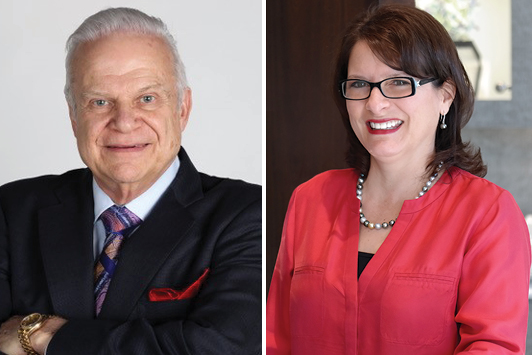 Images from left: David Rotenberg; Dianna Rea High
David Rotenberg
Images from left: David Rotenberg; Dianna Rea High
David Rotenberg
Owner,
David Craig Jewelers
Langhorne, Pennsylvania
Yes, consumers will spend a little more for ethically sourced diamonds, but I think we need a reality check. I don’t believe the consumer necessarily thinks it’s worth paying 20% to 25% more for a diamond from a company that’s socially responsible.
Customers are most interested in what they can see in front of them. If the diamond is gorgeous, they love it. And if it’s sitting next to a not-so-great diamond, they can see the difference. Now, whether the nicer-looking stone is within their price range starts a different conversation. I’ve never been turned down by someone saying they’re not interested in quality; they’re not interested in it at a particular price point.
I introduce the socially responsible sourcing concept. I want them to know that this natural diamond is clearly different from the lab-grown. I would like to feel that once that conversation gets going, the interest level of the individual takes over. If I can talk to a consumer, I can explain that I can show them something in their budget that might be smaller than what they can get in a lab-grown diamond, but they’re going to know that behind that diamond, companies have supported families, health care, housing. Not everyone is altruistic, but if they can get what they want and still help that poor miner, they have some interest in doing that.
If you go into a shop that sells clothing, everything isn’t the same price. A salesperson can explain what’s better about higher-priced items, that there’s more cost to producing them. We have to do the same, but we need to get away from presenting it as a “premium,” which can scare people off buying. The industry needs to stand shoulder to shoulder wanting ethically sourced diamonds. But I do think the industry has to better educate consumers on what that means so they are not led astray by a good price.
Dianna Rae High
Owner,
Dianna Rae Jewelry
Lafayette, Louisiana
No. It’s not something that my customers request and are willing to pay a premium for. I have not seen an interest from my customers in whether the diamonds are sourced in a responsible way. That topic seldom comes up.
I make a point of buying ethically sourced diamonds because I think it’s the responsible thing to do, but I haven’t seen it translating into customer requests or requirements. We recently signed a Space Act agreement with NASA, allowing us to send not only diamonds but gemstones to the International Space Station. After being there for 30 to 40 days, the stones are brought back to earth, where we will mount them in custom settings. NASA was very specific that we [must have] written statements from our suppliers that the stones are ethically sourced. And we acquired those statements from all of our suppliers. We are preselling those diamonds, and they are selling well — but not necessarily because they are responsibly sourced.
The only time I hear much about this topic is in reference to lab-grown diamonds. Some clients are choosing lab-grown because they believe it’s more socially responsible than mined diamonds, which is not necessarily correct, in my opinion, but it’s the customer’s opinion that matters.
Most of our 50-plus clients definitely want natural diamonds. The engagement buyers, 30 years old or younger, are split about 50-50 in terms of buying lab-grown or natural diamonds. And of those who do buy the lab-grown, while 50% are buying them because they feel they didn’t adversely affect anyone, the other 50% of them are buying because of the price.
I believe that it is important for the diamonds that are sold to be ethically sourced and that the suppliers are helping communities around the mines. But I don’t have customers asking about that, and they wouldn’t be willing to pay more because of it.
Article from the Rapaport Magazine - April 2022. To subscribe click here.